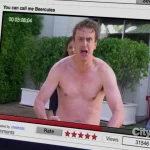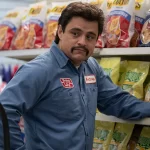Echo in the Canyon: The Unheard Music, by West Anthony

To say that Laurel Canyon was a hotbed of musical creativity and innovation in the 60s is like telling you that you are breathing air at this very moment; yes, it is an immutable truth but it’s not necessarily something you’re aware of until someone focuses your attention on it. Some of the most brilliant songs in the history of popular music poured out of this secluded Los Angeles neighborhood like somebody turned on a faucet; musicians gravitated toward the Canyon as though they were in the grip of a Death Star-like tractor beam and the music they created endures as cultural touchstones in movie and TV soundtracks, commercials, and on classic rock and oldies radio stations everywhere, instantly recognizable to generations of listeners and enjoyed by people whose own parents weren’t even alive when it was made (perhaps if Captain Beefheart had lived in Laurel Canyon instead of Woodland Hills, his music might have been more accessible). Musical and cultural scholars have long been quite rightly fascinated by this region and this era and yet it has long been deserving of a definitive audio-visual exploration; Legends Of The Canyon, a 2010 rock doc, made a good start but the second half of the film is almost entirely focused on Crosby, Stills, Nash & Young, so a lot of other artists get short shrift. A truly great rock doc about the Laurel Canyon scene should be of paramount importance here and now, while many of the participants are still with us.
Which is why it is supremely disappointing to have to tell you that this ain’t it. Yes, Echo In The Canyon does contain interviews with many surviving legends of the era–David Crosby, Brian Wilson, Roger McGuinn, Stephen Stills, Graham Nash, and Michelle Phillips among them, as well as authoritative commentary from Tom Petty in what is reportedly his last filmed interview–and there is a handful of archival video footage and snippets of their music. Sadly, however, a great deal of the picture’s running time is completely wasted on performances from a 2015 concert at L.A.’s Orpheum Theatre in which Jakob Dylan, Beck, Regina Spektor, Fiona Apple and others pay tribute to their musical forebears with an evening of cover tunes; in a similar vein, there are equally unwanted scenes of Dylan leading recording sessions for some of these songs for–big surprise–a tie-in album for the movie. That’s right, folks. If you were hoping for a spiffy soundtrack album chock-full of those classic original 60s recordings you know and love, you can officially go jump in the L.A. River–all you’re getting is a collection of pale, uninspired imitations. There is more electricity in one minute of the Buffalo Springfield performing a medley of “For What It’s Worth” and “Mr. Soul” than in all the contemporary performances in this film put together.
Dylan interviews the various Laurel Canyon musicians who appear in the movie and one can only hope that there is a lot more of this footage to put on the DVD as a bonus feature because the tidbits of insight and trivia and gossip we get from these rock and roll giants is truly tantalizing; perhaps in some cases less is more but where this film is concerned, less is just plain old less. Eric Clapton’s anecdote about how Stephen Stills came out through the bathroom window to escape a drug bust that Clapton was unable to evade (I guess his hand isn’t the only thing that’s slow) is the kind of thing Echo In The Canyon could have used a lot more of; instead, the only thing more unnecessary than the concert footage and the recording session footage is scenes of Dylan, Spektor, Cat Power and Beck sitting in someone’s living room, talking in reverent tones about the music that we all could have been enjoying at that very moment and poring over a pile of old LPs like they were the Dead Sea Scrolls. Full disclosure, gang: I have been known to do some obsessive poring over my own record collection but you’ll never see it because I’m smart enough not to make a goddamn movie about it.
What is most unforgivable is all the musicians who are, in what is only an 82-minute picture, entirely absent from it: Stills mentioning Frank Zappa reciting the lyrics from “Who Are The Brain Police?” (from his brilliant 1966 debut album Freak Out!) is the only mention of this most daring and iconoclastic of American artists. Somehow, Arthur Lee’s band Love merits no attention at all, even though Lee was one of the very first rockers to move to the Canyon and Love was immensely popular and influential in Los Angeles, if not the rest of America; and Joni Mitchell–JONI FREAKIN’ MITCHELL–who even wrote a song called “Ladies Of The Canyon”–may as well have never existed at all as far as this film is concerned. This exclusion is bizarre and ridiculous and Ms. Mitchell looms large over the whole project by her very absence. I guess this is only further damning the film with faint praise but one of the things I liked best about it is someone else’s movie. You heard me. It’s 1969’s Model Shop, French director Jacques Demy’s first film in English and a film I regularly recommend to anyone who wants to know what Los Angeles really looked like in that period because Demy captured the late-60s L.A. milieu without Hollywooding it up and slathering his film in studio artifice; Echo In The Canyon is interspersed with footage from Model Shop to evoke the vibe and mystique of the era. Sadly, this footage also serves to make everything that surrounds it look that much less interesting.
Echo In The Canyon is undone by the fact that, while it supposedly intends to be–and absolutely should have been–a celebration of timeless Los Angeles music and its creators, it instead comes across as a celebration of the contemporary artists’ abilities to appreciate that music and perform it. When you realize that the director, Andrew Slater, is primarily a music industry muckety-muck, having served as a manager, record producer, and one-time CEO of Capitol Records, it becomes dismally clear that, for all its earnest posturing about the Laurel Canyon scene, the film is more interested in functioning as a promotional video for the forthcoming soundtrack album. Echo In The Canyon is not a documentary made by a filmmaker. It is a commercial made by a record salesman.





























